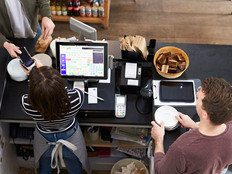Explosive Opportunity

In this unfortunate age of terrorist threats, the importance of ensuring that explosives and blasting agents don’t end up in the wrong hands can’t be overstated. Startup ExploTrack in Harleysville, Pa., tackles that problem by tracking explosives shipments as they move from manufacturers to their final destination. Imagine running that IT operation? Derek Niederhut, systems engineer for ExploTrack, must guarantee that manufacturers’ commercial-grade explosives don’t go missing. BizTech Senior Editor Brad Sowell spoke with Niederhut about his best IT investment and working at such a unique company.
BizTech: What makes ExploTrack so unique?
Niederhut: We install RFID [radio frequency identification] tags on the explosives that a manufacturer makes so that it can track them in shipment. We put RFID tags in cases of explosives and set up read points at different places in the explosives supply chain. That way we can see each case as it is read at each point. There’s a security aspect, and that’s what gets customers interested. But companies are also trying to reduce costs, so they’re looking for better inventory management.
BizTech: Is there a big need to track explosives?
Niederhut: Yes. There is a big threat overseas from people wanting to steal the explosives to make weapons. That same threat is also prevalent in the United States. The federal agency responsible for tracking explosives in this country is the Bureau of Alcohol, Tobacco, Firearms and Explosives. They will typically inspect a manufacturer’s shipment, and if anything is missing, the government tells them they have to find the missing explosives. RFID tracking will help expedite the search process and retrieve the missing material so that the manufacturer can get back to business.
BizTech: Can you give us an example of how it works?
Niederhut: We ran a test with the help of the New York City Fire Department. They transported explosive material from point A to point B with three checkpoints in between. During the shipment, they purposely lost some of the explosives. We were able to quickly identify and recover the missing explosives.
BizTech: Looking back, what do you think has been your company’s best IT investment?
Niederhut: Internally, we use Macs for our own development work and our own network rather than the typical Windows approach. A lot of the Mac software is very easy to use, and it integrates well on the same network.
BizTech: If money were no object, what would be on your IT wish list this year?
Niederhut: I would build our own data center.
BizTech: What is your most indispensable IT tool?
Niederhut: A notebook. We use notebooks for design work. I can take that machine to a customer for work and also troubleshoot network issues. With a mobile device, you can do some things, but if I want to get my hands dirty and solve a problem, I need a little more ammunition.







